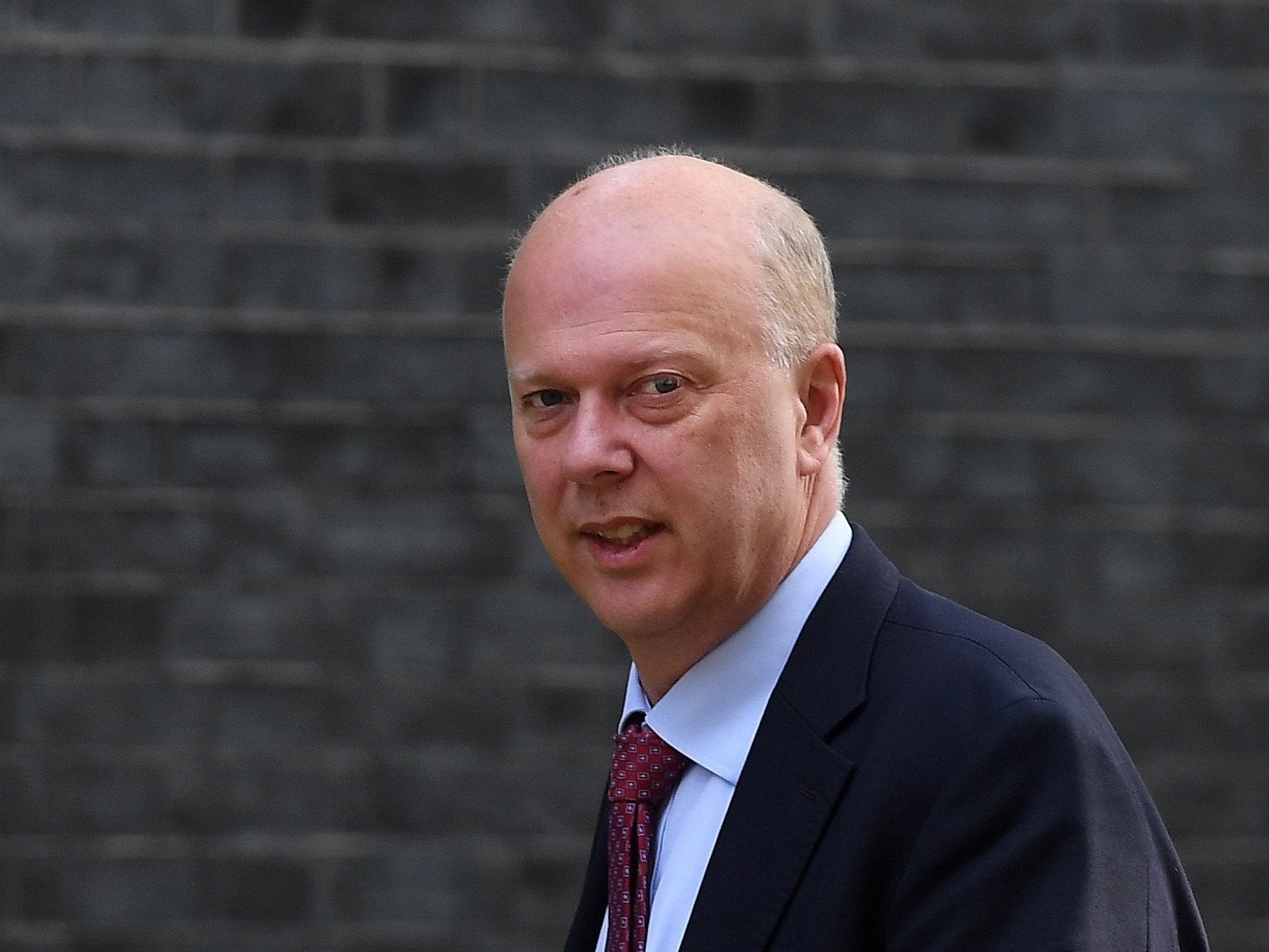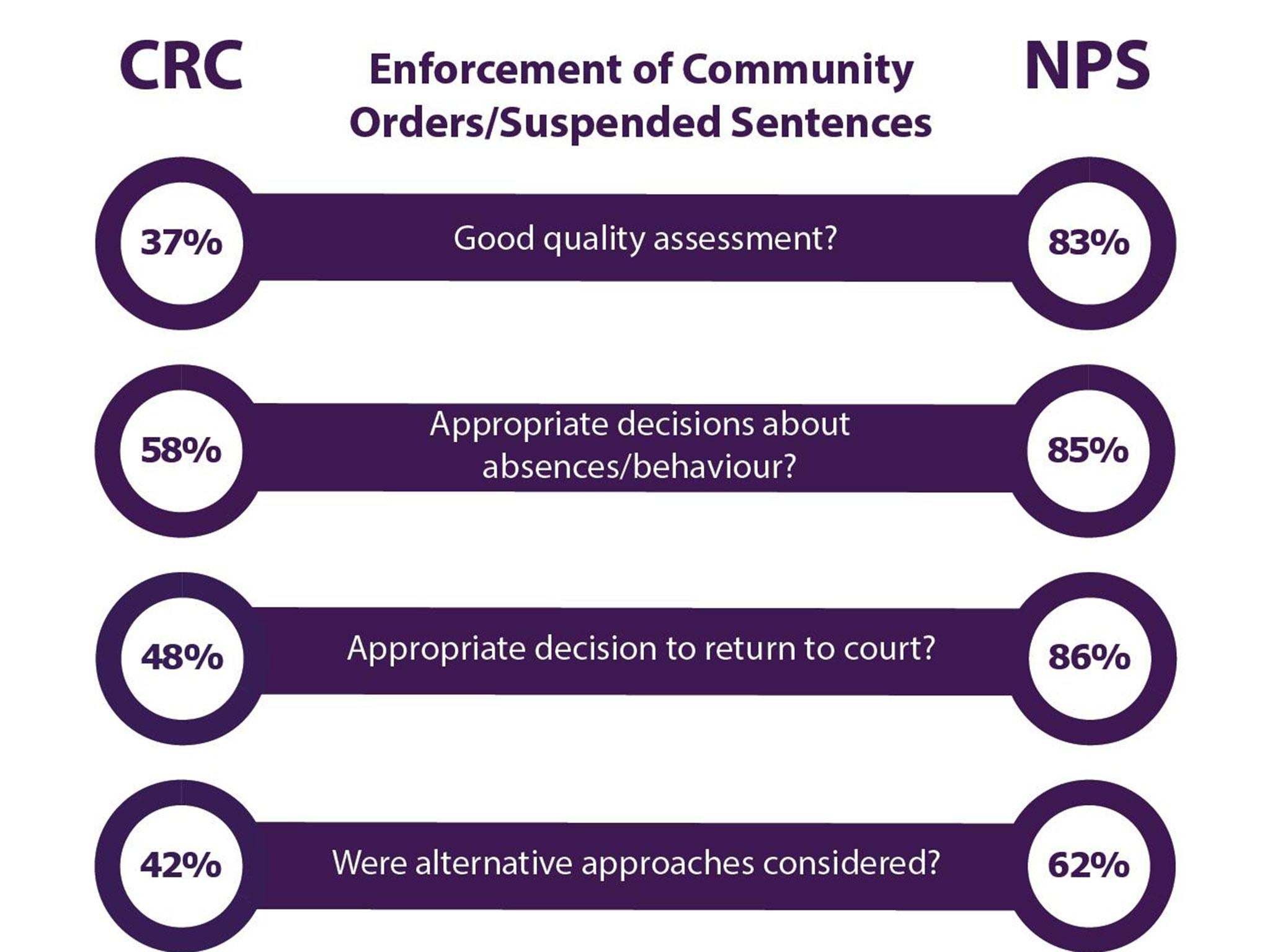Chris Grayling's 'disastrous' probation privatisation worsened supervision of criminals, MPs say
Ministry of Justice spending £467m extra public money to change contracts

Chris Grayling’s “disastrous” part-privatisation of probation damaged services that are meant to keep the public safe and help criminals turn their lives around, according to a damning parliamentary report.
The Public Accounts Committee said the 2014 Transforming Rehabilitation scheme failed to reduce reoffending and left services “underfunded, fragile, and lacking the confidence of the courts”.
MPs said that under Mr Grayling’s leadership, the Ministry of Justice pushed through reforms at “breakneck speed” despite warnings that the payment structure for companies being handed probation work would not work.
The report said that as the 2015 general election approached, the government failed to fully pilot the changes and tied them to an “undeliverable” timescale.
“It is unacceptable that so many unnecessary risks were taken with taxpayers’ money,” MPs concluded.
“Inexcusably, probation services have been left in a worse position than they were in before the ministry embarked on its reforms.”
Meg Hillier, chair of the Public Accounts Committee, said warnings had been sounded for years.
“Rather than deliver the savings hoped for at the start of the programme, the ministry’s attempts to address the failures in the reforms have cost the taxpayer an additional £467m while failing to achieve the anticipated improvements in reoffending behaviour,” she added.
“The way offenders are treated on their release from prison has a significant impact on how they re-integrate into society – the failures of this programme have left offenders unsupported leading to further costs to taxpayers in dealing with both reoffending and supporting individuals failed by the rehabilitation system.”
The criticism came after renewed calls for Mr Grayling, now the transport secretary, to resign over a no-deal Brexit ferries fiasco costing taxpayers an extra £50m.
The Department for Transport will be forced to pay termination costs to companies including a firm with no ferries, after axing their contracts.
Those settlements come on top of a £33m payment made to Eurotunnel earlier this year, to settle its legal case over the cross-Channel contracts.
Mr Grayling's department is also being sued by P&O Ferries over its complaint that the payment to Eurotunnel put it at a competitive disadvantage.
“Chris Grayling’s approach to procurement and planning has cost taxpayers tens, if not, hundreds of millions of pounds,” said Andy McDonald MP, the shadow transport secretary.

“His career as a minister has left a trail of scorched earth and billions of pounds of public money wasted.”
The Independent asked Downing Street whether the prime minister still had confidence in Mr Grayling but received no reply.
Probation services manage more than a quarter of a million offenders in England and Wales, including inmates preparing to leave jail, ex-prisoners living in the community and people serving community or suspended sentences.
A watchdog previously said the decision to divide offenders between the public National Probation Service (NPS) and private community rehabilitation companies (CRCs) had caused “poor quality” monitoring of criminals.
From 2015, every criminal released from prison became subject to statutory supervision, which had previously only been required for those serving over a year in jail.
Since the changes, a “skyrocketing” number of criminals have been recalled to prison, more than 200 offenders supposedly being monitored by CRCs have been charged with murder and others have committed serious offences or disappeared.
The Public Accounts Committee cited figures showing that, from 2011 to March 2017, the average number of re-offences per re-offender increased by 22 per cent.
The report also noted that the number of offenders recalled to prison for breaching their licence conditions went up by almost half from January 2015 to September 2018.
Richard Burgon, Labour's shadow justice secretary, said: “Mr Grayling’s disastrous decision to privatise probation has been a costly failure that has left our communities less safe.

“The Tories must show that they have learnt the lessons of this failure and drop their ideologically-driven plans to sign yet more private probation contracts.”
Vicki Cardwell, deputy chief executive of the Revolving Doors Agency, called for a “fundamental rethink” of the policy.
“People leaving prison often face a potent mix of poor supervision and support, alongside other factors such as drug service disinvestment, long waiting lists for mental health treatment, lack of housing and benefit delays,” she added.
After a Justice Committee inquiry called on the government to overhaul the “mess” last year, David Gauke announced a restructure of CRCs and new contracts.
A National Audit Office report revealed that bailouts for failing companies and contract cancellations will cost taxpayers more than £467m.
A Ministry of Justice spokesperson said: “We want a probation service that puts public protection first, commands the confidence of the courts and breaks the cycle of reoffending.
“Our reforms mean 40,000 more offenders are being supervised, which is the right move for public safety, but the current model is not working and we need to do more.
“We have already acted decisively to end current contracts early, make changes to existing arrangements and we are still spending considerably less than originally forecast. This has enabled us to invest an extra £22m a year to support offenders on release and we are now carefully considering our plans for the future.”
Bookmark popover
Removed from bookmarks